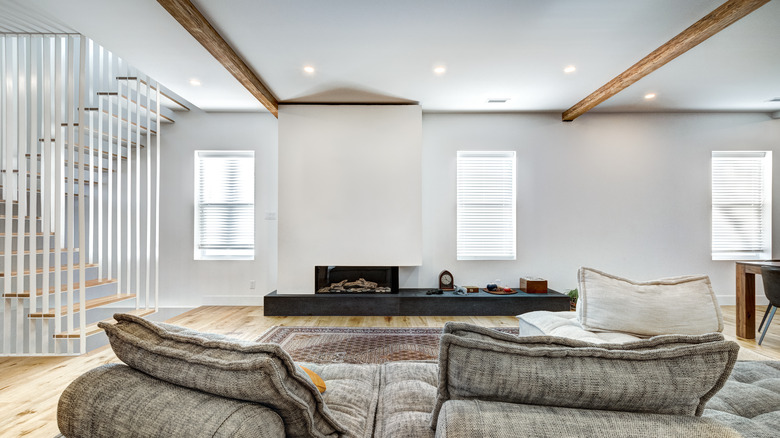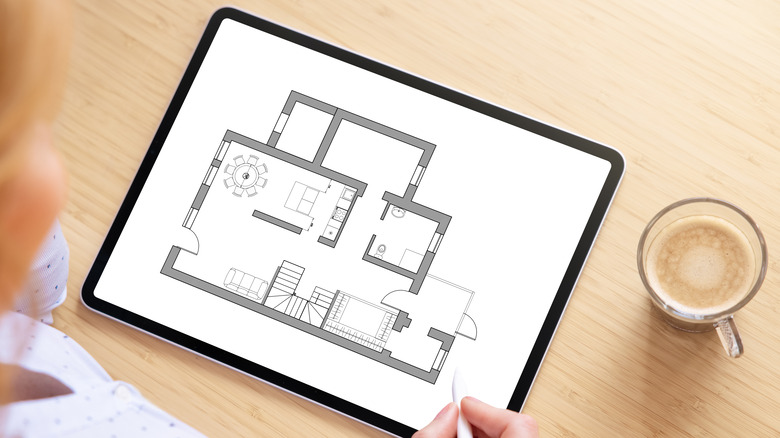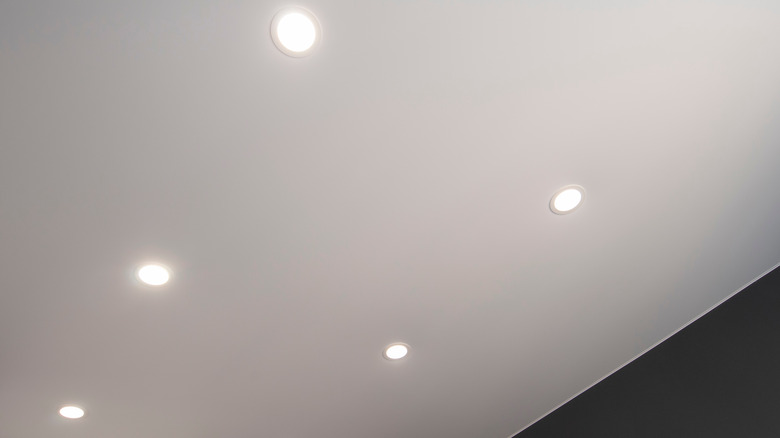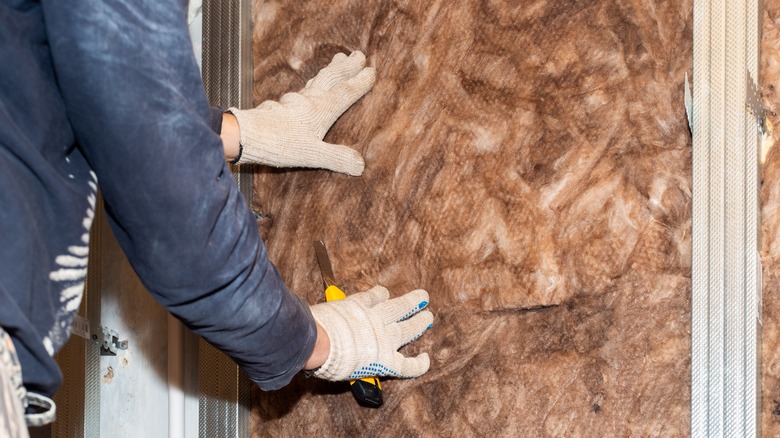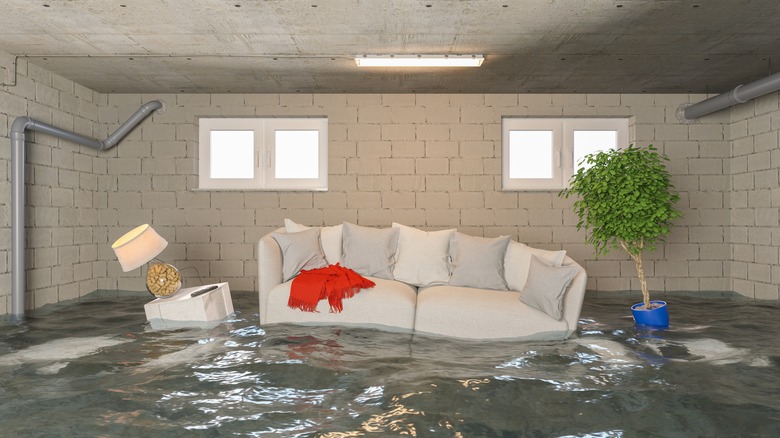The Worst Mistake You Can Make When Redoing Your Basement
Your basement isn't just a place to store holiday decorations until next year. It has untapped potential square footage that you can use for extra living space. You have plenty of options for how to transform a basement and customize it to your lifestyle and home needs. For example, you can create a suite for in-laws, guests, or an au pair, per Bryer Construction. Add a media room to host movie nights, a home office to get work done, or a playroom to keep kids' toys out of the main living space.
But you can ruin these luxurious, multifunctional basement spaces if you don't take the proper precautions when redoing your basement. What was once an exciting possibility will become another nightmare you might have to solve. And some mistakes can be pretty costly to fix. You want to do it right the first time by avoiding these basement remodeling mistakes.
1. You create a maze
Homeowners can often have a hard time conceptualizing spaces, which is where a floor plan can come in handy. A floor plan can give you a rough idea of the layout and what things will look like once they're finished. But proceed with caution. Because when adding the spaces you want in your basement, you don't want to create a choppy or maze-like floor plan that makes the space unusable.
You still want to follow the same design tenants as the rest of the home to avoid having a basement with an awkward layout. In an effort to create function, you don't to build walls and forget about room placement, explains The Plan Collection. If you're adding a bedroom or bathroom to a basement, be mindful of where you put them. You also don't want to add so many rooms that the basement becomes confining.
2. You don't add lighting
Most basements are underground in some capacity, which means there aren't a lot of opportunities for natural light. You have to supplement with light fixtures. But one of the biggest mistakes you can make is redoing your basement and not adding enough lighting. That will easily make the space feel like a cave and create an unwelcoming and even spooky setting.
For basements, general lighting — i.e., lighting that fills the entire space — is the most important. One of the most popular types of basement lighting is recessed ceiling can lights because they maximize the lighting without taking up a ton of space. They're great for low ceilings when pendant lights might get in the way. To get the evenest lighting, place the lights eight to 10 feet apart, says Tandem Contracting. Also, choose bright lighting that will supplement natural light. You'll also want to think about layering your lighting by adding table lamps or wall sconces to provide a softer or warmer ambiance.
3. You forget to insulate or soundproof the space
Imagine having a stunning basement that has all the bells and whistles to entertain and relax you. But it's freezing in the winter and boiling in the summer. No matter what you set the temperature to, it's never comfortable enough to spend more than a few minutes down there. That's probably because you forgot to add insulation. The proper insulation not only makes a space more livable but can also help save money on energy bills, according to Northern Basement Systems. Insulation helps regulate the temperature in your home. So if you have the heat up or the cold air cranking, it won't escape outside the house and make you turn the thermostat even higher.
You also don't want to forget to soundproof the space. You don't want to hear movies or video games blasting in the middle of the night or hear footsteps from the house above when you're in the basement. And if you're going to use any part of the space as an office or guest room, soundproofing can provide a much-needed serene area to get work done or relax.
4. You don't check building codes and permits
If you don't follow building codes before and during the building process, it may end up costing you money. All codes have to be met in order for the space to be considered livable and legal. There are structural codes, plumbing, electrical, and mechanical codes, as well as accessibility codes and energy codes, per Buildings Guide, and they all differ by state, city, and municipality. Before starting work, it's essential to check all codes to make sure that every detail meets the standard.
When hiring someone to do the job, it's important they know and follow all codes as well. You also have to apply for permits in order to legally be allowed to do a renovation. An inspector will come to your home to look at the work and ensure that all necessary codes are being met. And if they find that the work isn't up to par, they may shut down construction.
5. You don't consider moisture prevention
The worst possible outcome of a renovation would be having to rip it all out after a few years or even possibly getting sick from this mistake. If you don't consider moisture prevention and take active steps against it, you can be risking your basement and possibly your health to mold. As Healthline explains, inhaling mold spores can lead to eye irritation, sneezing, coughing, congestion, lung irritation, and sore throats.
Mold is often sneaky and difficult to catch because it grows hidden where most people can't see it at first glance. Most begin to notice mold because of the musty and earthy smell. Mold can also cause damage like warping, cracking, or peeling on the material it's growing on.
Mold loves dark, damp, and cold places, so a basement is a perfect location for it to thrive. It can grow in walls, behind appliances, and around windows. Keeping a basement dry will prevent mold growth. According to Laury Heating, that means addressing leaks, any excess water from landscaping, removing humidity, and waterproofing walls and floors.
